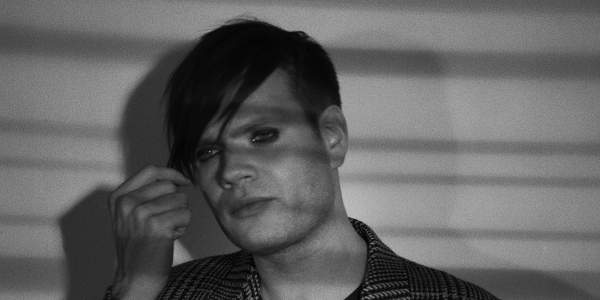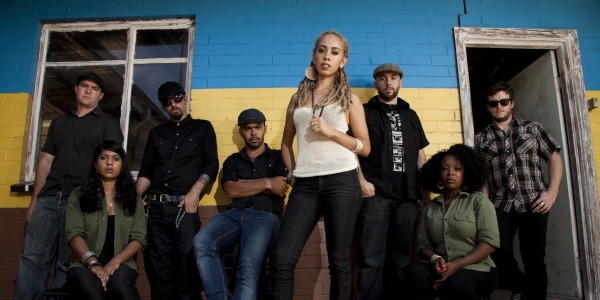However, sticking to a tried and tested formula for success is something Trentemøller is decidedly uninterested in. “It’s something that just happened, like an evolution in sounds between albums. Because it’s very important to me that I never make the same album twice,” he explains to me. Sophomore release Into The Great Wide Yonder veers off in a completely different direction – The Last Resort’s electronic textures and mysterious ambience is starkly contrasted by the more analog feel of Into The Great Wide Yonder, awash with lush, delicately-composed instrumentals and soaring vocals. “This time it’s not so much based around the computer, it’s more a vintage setup. It’s something I really like because using real instruments makes the music sound a little warmer and more alive, whereas music I make on the computer tends to be a bit colder. Drums and guitars, and lots of instruments.”
There’s a video on a full edition of Into The Great Wide Yonder that features a performance from the fabled Roskilde Festival, where there’s a crowd of thousands. “For us, Roskilde was a dream come true, because we were asked to play Friday night on the main stage, and I wanted to do something really special for it. It was a fantastic night.” Asked how he went about translating the delicate sounds of that album into something that could be performed on stage, he tells me that it wasn’t something that was difficult to achieve. “No, it was actually quite easy. That album’s all instruments so it was not hard; it was more difficult to translate that first album into something we could play on the stage. I do it with a band, so it’s good to do different versions while we’re on stage because we have the ability to do that, to shape that sound together.”
For those unfamiliar with Trentemøller’s work as a producer, the recently-released Remixed/Reworked serves as an excellent starting point. A two-disc compilation that spans much of his discography both as a remixer, along with the highlights that have resulted from the edits others have done to his work, the lineup of names is striking – Thom Yorke, Franz Ferdinand, UNKLE and Depeche Mode all receive the Trentemøller treatment, and a raft of his own tunes are taken out and re-edited, both by himself and others including Modeselektor, Andrew Weatherall and more.
Despite a reputation as a prolific producer with a discography that includes a host of other remixes, curating this compilation didn’t come as a struggle for him. “I already knew which tracks I wanted to include on the album, so that part was actually quite easy. It flows well because I guess overall it is my sound – I have done a lot of these remixes over time and I think I have developed my own sense of style. I’m very happy with how it ended up – it sounds like a very organic thing.”
We talk about the remix process, and how it differs to sitting down in the studio to write his own original material. “For me, it’s quite different because creating my own music, it’s much more personal, and remixing is more like an experiment. It’s from outside, it’s not music that you have written yourself and you’re thinking instead about how to make it yours – most of the time I only use the vocals and I am writing and working with new melodies and chord progressions, experimenting with vocals and new basslines. It’s a very different way of approaching it.”
Trentemøller has also just finished employing his production talent for fellow Danish rock duo Darkness Falls, whose debut LP Alive In Us inhabits a ghostly space somewhere between post-rock, gritty electronic sounds and shoegaze-tinged pop. It’s a stunning debut – processed, reverb-drenched guitars, ghostly layers of synths and deft song-writing talent. “I was working with the lead singer Josephine on Into The Great Wide Yonder and she told me her and her friend were working on something new, and they asked me to produce it for them. Again, it’s a lot like remixing in that it’s working with somebody else’s material, mostly just shaping it into something with what you’ve learnt and adding new things.”

